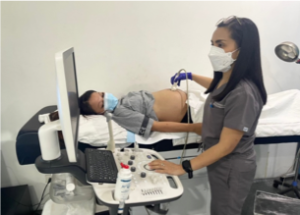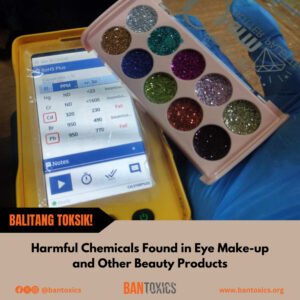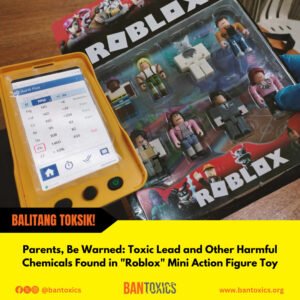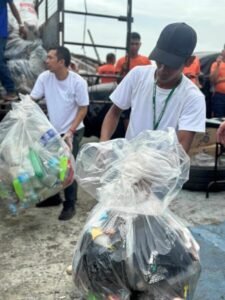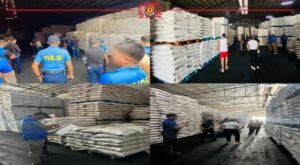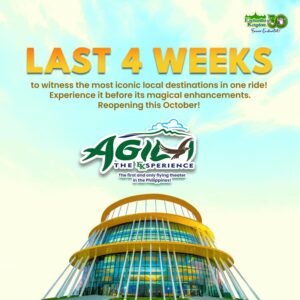
ENVIRONMENTAL justice group BAN Toxics held a toy clinic and seminar yesterday at Payatas B Elementary School in Quezon City as part of its activities for the 12th International Lead Poisoning Prevention Week (ILPPW). Attended by about 50 students, teachers and PTA officers, the event highlighted the ongoing threat of lead in toys and other children’s products, raising awareness on the harmful effects of exposure to this toxic chemical.
The children brought an assortment of popular toys for chemical testing at the toy clinic, including toy cars, action figures, a basketball, a toy gun and sword, Rubik’s cubes, stuffed toys, battery-operated robots, dolls, squeaky toys (with lights and button cell batteries inside), school bags, and other school items. BAN Toxics Campaign and Advocacy Officer Thony Dizon used a Vanta C Series Handheld XRF Chemical Analyzer to identify which items contained lead and other hazardous chemicals.
Some of the toys tested positive for lead content, ranging from 16 parts per million (ppm) to as high as 5,000 ppm, while the school supplies showed non-detectable levels of lead.
Parents expressed their appreciation for the activity, stating that they gained a deeper understanding of the dangers of lead. They also recognized the crucial role parents play in ensuring the safety of their children from harmful substances.
The World Health Organization (WHO) classifies lead as one of the 10 chemicals of major public health concern. It is commonly used as an additive in paint applied in homes, schools, playgrounds, and toys. Young children are particularly vulnerable to lead poisoning due to their unique pathways of exposure, which can result in higher levels than adults. The effects of lead on the nervous system are lifelong and can include reduced IQ, learning difficulties, irritability, and anti-social behavior. The Institute for Health Metrics and Evaluation’s (IHME) latest data estimates that over 1.5 million deaths globally were attributed to lead exposure in 2021.
This year’s #ILPPW2024 theme, “Bright Futures Begin Lead-Free,” reminds the public of the unacceptable risks of lead exposure and the urgent need for action to protect children’s health. In the Philippines, the Department of Environment and Natural Resources (DENR) Administrative Order (DAO) 2013-24 prohibits the use of lead and lead compounds in food packaging, fuel additives, water pipes, toys, school supplies, cosmetics, and paints. However, recent market monitoring by BAN Toxics reveals that lead-tainted consumer items, including toys and other children’s products, are still being sold in stores, sidewalks, and commercial hubs across Metro Manila.
“We need stricter implementation of the ban on lead. We call on our regulatory agencies, including the Food and Drug Administration, the Department of Trade and Industry, the Bureau of Customs, as well as local government units, to take action against the entry, production, and sale of lead-containing consumer products. said Dizon.
Meanwhile, BAN Toxics Executive Director Rey San Juan Jr., who spoke at the event, urged teachers to take an active role in educating the youth about the dangers of lead and other toxic chemicals.
“The education sector has a key responsibility not only in protecting our children but also in shaping their minds to become future stewards of the environment,” said San Juan Jr.
The Toy Clinic is part of BAN Toxics’ Toxic-Free Schools Program (TFSP), an initiative to raise awareness on the proper handling and management of toxic chemicals and wastes in schools, homes, and communities. Payatas B Elementary School is a TFSP partner.
BAN Toxics is set to conduct more ILPPW activities this week, including a community awareness event in Barangay Tatalon, Quezon City, and a seminar in Trece Martires, Cavite.

